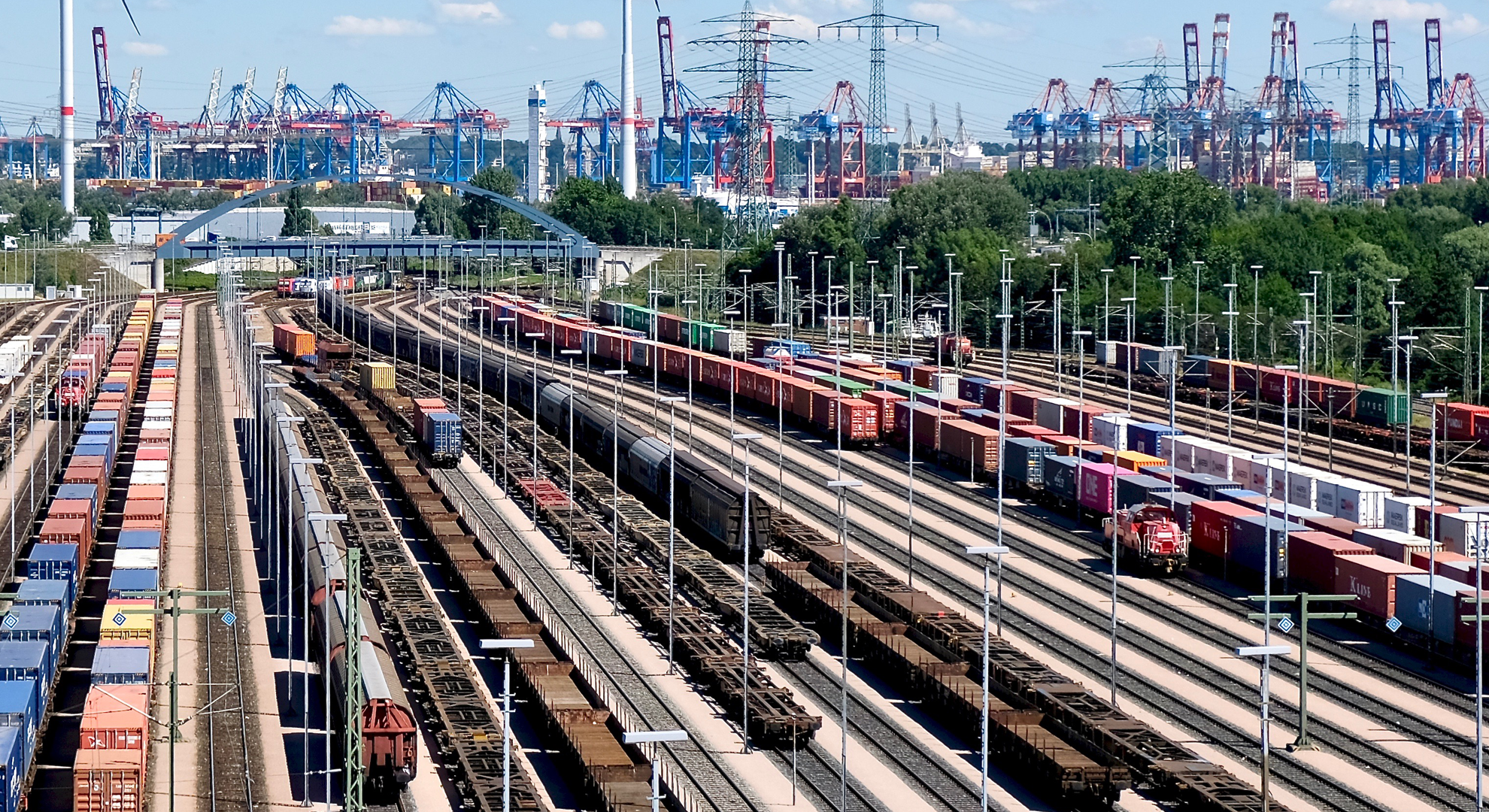Because being a superhero isn’t a real job
Susanne Marth is passionate about all things maritime and marine conservation. That is why she works for the Waterways Police ...

While she is rail-savvy, she isn’t a trained railway specialist. “In my bachelor studies, I didn’t deal with the topic even once. I just stumbled into it,” recalls Isabel Ziebart, who has been employed in project management at the Hamburg Port Railway since September 2023. Project management, she says, is absolutely her thing.
Ziebart studied industrial engineering. She began her professional career in project management at Deutsche Bahn. During this time, she also completed her master’s in construction law. With this background, she switched to “superstructure” project management at the Hamburg Port Railway – a division of the Hamburg Port Authority (HPA) – a few months ago. Here, she is primarily responsible for the major project “Alte Süderelbe Western Bypass” (WASE).
„At the HPA, we
have the opportunity
to shape and change
something for
the long term"Isabel Ziebart
Project manager at the
Hamburg Port Railway
“Railways are a highly complex system and extremely fascinating, multifaceted and therefore also challenging,” the young woman comments. The goal of the WASE project is to break up a rail node at the port. The northern section of the train station represents a bottleneck in the western port railway network. A double-track western bypass is planned to relieve this node and also increase the efficiency of the system in view of a higher expected traffic volume.
Her job involves project coordination. This is by no means a trivial task, as many different stakeholders need to be coordinated. There are also technical topics, such as how the port railway has to organise the tender process as a public contracting authority, in order to comply with public procurement law. “Planning is particularly important. In other words, how we put on paper what actually needs to be implemented on the ground.” This then needs to be coordinated with all internal and external interfaces and meet the requirements of the approval authorities.
Ziebart’s job is to bring these threads together, keep all stakeholders equally informed and push the project forwards, step by step. Depending on the phase, she primarily works from the office or from home, but she also often has meetings with planners or stakeholders on site. “As soon as the project moves to the execution phase, I’ll be out and about more often to maintain an overview of current progress,” the 32-year-old explains. This makes the work even more varied.
She particularly enjoys it when a solution can be developed successfully as a team. “Then everyone leaves the meeting in a good mood, because they are happy with the result,” Ziebart says. Best of all is when the developed concept actually works in the end. “At the HPA, we have the opportunity to shape and change something for the long term,” she adds.
Ziebart does not believe she has to distinguish herself in particular as a woman in what is perhaps still a male-dominated industry. “I think as a young person – whether a woman or man – you first have to prove yourself.” People are generally very friendly and treat each other with respect, she says. Since she has only recently chosen to switch courses to the port railway, her impressions of the company are still rather fresh compared to her previous employer. “Compared to Deutsche Bahn, the work is not less complex – to the contrary, there are so many different fields of work in such a small area at the port railway.” What’s special, according to Ziebart, is the fact that so many colleagues have been working at the port railway for so long and are proud of working for a Hamburg organisation. “As a result, it’s very collegial here; everyone is very helpful. At the HPA, you also have the opportunity and the necessary support to develop yourself if you are interested in doing so,” she concludes.
Requirements: To become a project engineer at the port railway, applicants should have completed engineering studies with a relevant area of specialisation, and ideally have professional experience in the railway sector. The work is by no means routine. Project engineers oversee, manage and realise a project from start to finish. They coordinate tasks and maintain an overview of the targets, costs and schedule.
Softskills: Besides motivation and team skills, the ability to communicate with empathy is among the attributes required for the job. Project engineers often act in a moderating capacity. Leadership ability and sociability as well as perseverance, resistance to stress and a degree of tenacity are also important. Project engineers must be able to work in a structured manner and should always be able to pull out a Plan B.